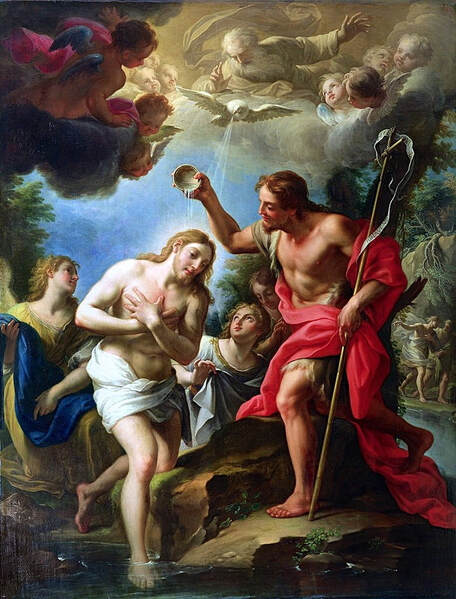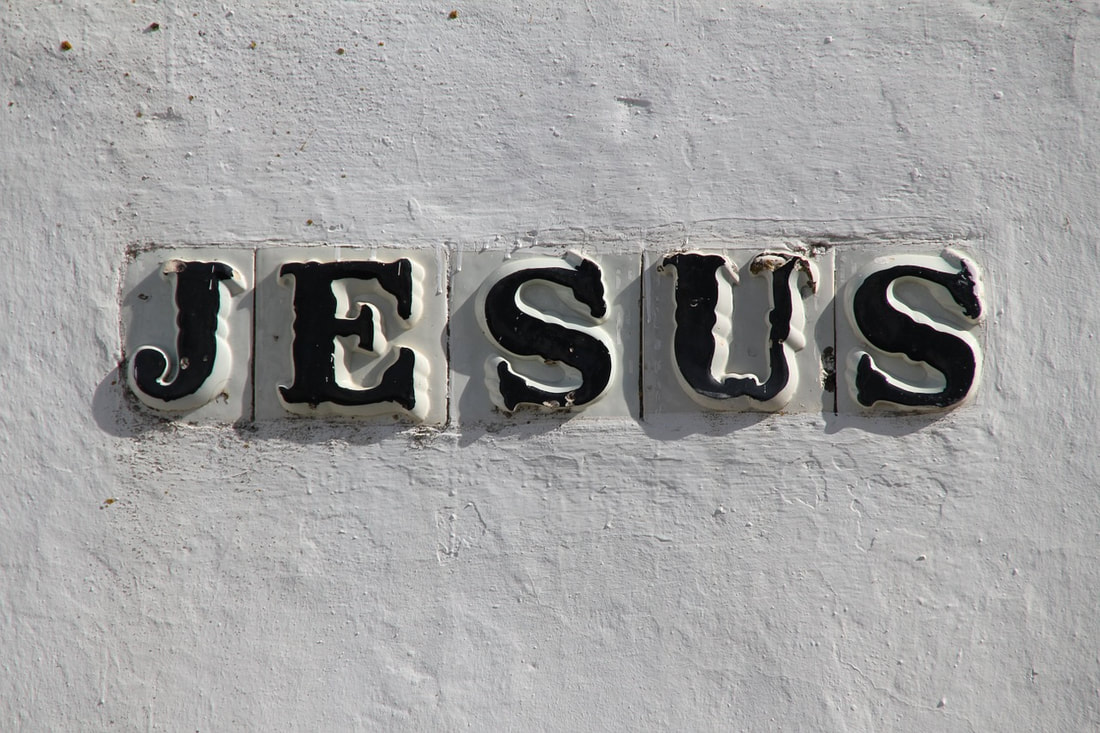|
Let me take this opportunity to wish you all a very Happy Republic Day. Today is our seventieth Republic Day when we gave to ourselves the Constitution. The preamble in the Constitution reads: “WE, THE PEOPLE OF INDIA, having solemnly resolved to constitute India into a SOVEREIGN SOCIALIST SECULAR DEMOCRATIC REPUBLIC and to secure to all its citizens: JUSTICE, social, economic and political; LIBERTY of thought, expression, belief, faith and worship; EQUALITY of status and of opportunity; and to promote among them all FRATERNITY assuring the dignity of the individual and the unity and integrity of the Nation. IN OUR CONSTITUENT ASSEMBLY this twenty-sixth day of November, 1949, do HEREBY ADOPT, ENACT AND GIVE TO OURSELVES THIS CONSTITUTION.” However, in the last few months particularly we have seen that the very fabric of this preamble has been attacked by passing laws like the CAA, based on the grounds of religion and excluding the Muslim community from its right for refugee status or the implementation of the National Register of Citizens (NRC) or the National Population Register (NPR) which excluded 19 lakh people in the exercise carried out in Assam. This was then stated in Parliament that it would be applied to all the states of India by the Home Minister and later refuted by the PM stating that no serious discussion has taken place on the NRC being applied to all states. This has led to protest all over India and has put people at unrest. It is in this kind of context that God calls us as a Christian community to stand up for the truth and the values of the kingdom of God. In the gospel reading for us this morning, the Pharisees wanted to trap Jesus and therefore they sent their disciples to him along with the Herodians. This group comes to Jesus and they say, “Teacher, we know that you are a man of integrity and that you teach the way of God in accordance with the truth. You aren’t swayed by others, because you pay no attention to who they are. Tell us then, what is your opinion? Is it right to pay the imperial tax to Caesar or not?” The purpose of this question was to test whether Jesus owed allegiance to the Roman Empire or whether he would support the Jewish people in not paying taxes, which would mean that he was against the ruling Roman government. The point was to either label him as ‘anti-national’ or ‘anti-community’, one way or the other, depending on his answer. They wanted to trap Jesus with this question. Sometimes you and I may be forced to face this same question. You are anti-national if you don’t agree with the current dispensation or you are anti-community if you do. How do we navigate through these difficult decisions? Are there only these two options? The theology underling paying taxes was that allegiance to God and to Rome as a pagan occupying power were fundamentally incompatible. You had to be with one or the other. Jesus however comes out with a different option altogether. He says, “Render to Caesar what is Caesar’s and to God what is God’s.” Jesus ask them to bring a coin and he showed them the image on the coin and asked them, “Whose likeness and inscription is this?” And they said it was Caesar’s. Jesus therefore said, ‘Give to Caesar what belongs to Caesar and to God what belongs to God.’ Jesus was in fact saying that it was right to pay taxes to Caesar but it does not stop with that. There are obligations to the State that do not infringe on our obligation to God and we are expected to do it. Human beings are made in the image and likeness of the God and therefore our ultimate loyalty is to God. We are to practice this loyalty in our day to day to day lives as we practice, obedience, love, justice, truth and faithfulness. We are to bring in God’s reign, the new community of upside-down kingdom values, which is the source of hope and transformation. We are not to remain as mute spectators when there is injustice around us. We are to speak the truth in love. German Lutheran pastor Martin Niemöller (1892–1984) talked about the cowardice of German intellectuals and certain clergy (including himself, by his own admission) following the Nazis' rise to power and subsequent incremental purging of their chosen targets, group after group as follows: First they came for the socialists, and I did not speak out-- Because I was not a socialist. Then they came for the trade unionists, and I did not speak out-- Because I was not a trade unionist. Then they came for the Jews, and I did not speak out-- Because I was not a Jew. Then they came for me—and there was no one left to speak for me. May we not fall into that same category. As followers of Christ truth and justice are vitally important for us. We are to stand up for truth, for justice, for equality, for liberty and for the fraternity as we have promised ourselves in the Constitution. May God bless our Republic of India. Jai Hind! and God bless you. Shalom Paul Swarup Download Hindi Version Our theme for this morning’s meditation is “God suffers in all those who suffer in this world.” Many of us have gone through terrible times of suffering and may be some of you are going through it now and are wondering whether God understands your suffering and will do something about it. Throughout the earthly ministry of Jesus, we see that he was moved with compassion whenever he saw someone sick or suffering and healed them. Our God is a God of compassion and mercy and he understands the pain of suffering. In the Old Testament reading from the book of Kings we notice that an army commander of Aram named Namaan was a mighty soldier and highly regarded but he was a patient of leprosy. In olden times leprosy was seen as an untouchable disease and people who had leprosy were ostracized. Normally, they had to live outside the city limits and had to cry out, ‘unclean, unclean’ whenever they saw people. In Namaan’s case the condition is probably not advanced for he is still serving in the King’s army. In Namaan’s house there was a little captive young girl from Israel who served Namaan’s wife. The servant girl told Namaan’s wife that there was a prophet in Israel who could cure his leprosy. The little girl whose name is not mentioned is moved with compassion for her master. Namaan then goes and tells the king about the possibility of being healed by this prophet in Israel. The king of Aram sent him to the king of Israel asking him to cure him of his leprosy. The king of Israel tore his robes and said, “Am I God? Can I kill and bring back to life? Why does this fellow send someone to me to be cured of his leprosy? See how he is trying to pick a quarrel with me!” When Elisha the man of God heard that the king of Israel had torn his robes, he sent a message to him asking Namaan to be sent to him so that he would know that there is a prophet in Israel. Namaan went to Elisha’s house and Elisha just sent a messenger saying, “Go, wash yourself seven times in the Jordan, and your flesh will be restored and you will be cleansed.” Namaan was angry because neither did Elisha came out to see him nor did he ask him to do anything spectacular except to go and wash himself in the Jordan seven times. The Jordan was not particularly a clean river and he knew that there were better rivers in Damascus. The servants eventually persuaded him to do what the prophet had asked him to do. The commander did it and his flesh was restored like a young boy. From Namaan’s experience of the divine hand comes the greatest of all conversion confession in the Old Testament: “Now I know there is no God in the world except in Israel.” The little Israelite girl testified to Yahweh in a foreign land and brought about the healing of the commander of the army of Aram. Her genuine plight led her to testify about God and his healing power. God heals Namaan who in turn testifies to the living God that there is no other God except in Israel. In the New Testament reading from the Gospel of Mark, we see how Jesus healed a man who was a patient of leprosy. Jesus however, touched him and healed him because of his compassion. Jesus too reveals God’s compassionate heart as he suffers with those who suffer and breathes healing into them. The disciples too continued the work of healing which is recorded in the book of Acts. They too were moved with compassion and hence interceded for people to bring healing in their lives. The church too is called to have compassion on these who are suffering and intercede for their healing. Just as Jesus suffered with those who suffered we too are called to identify with those who suffer and minister to them. We live in a place close to AIIMS and Safdarjung and very often we are confronted with people who are suffering and desperately need God’s healing touch. How have we responded as a church? Do we have compassion for those who are sick and suffering and do we reach out to them? Or are we upset that the suffering are coming into our church and knocking our doors. May God fill us with his compassion and love that we too may identify with those who are suffering and bring healing into their lives. Shalom Paul Swarup Download Hindi Version We are now into the second week of 2020 and we look forward to this year with all its joys and challenges. We meditate on the theme, ‘At his Baptism Jesus is revealed as the Son of God.’ How does the Baptism of Jesus and his revelation as the Son of God affect us in our day to day lives? Human beings with their own capacities cannot know God. This true God can only be understood by revelation. God in his infinite mercy has chosen to reveal himself in and through his Son Jesus. When we see Jesus, we understand who God is. At his Baptism Jesus is indeed revealed as the Son of God. At the baptism of Jesus the heavens were torn opened. This is similar to the curtain in the temple being torn open when Jesus died again providing access to the Father. Jesus’ baptism also indicates the same. We have access to the Father. Communication with him has been re-established through the coming of Jesus. We have direct access and there is no need of any more mediators. When Jesus came out of the water a a voice came from heaven: "You are my Son, whom I love; with you I am well pleased." This is a quote from Ps 2:7 and Isa 42:1. The voice indicates that Jesus is both the beloved Son and the beloved servant. Jesus is revealed to us as the Son of God by this divine voice. But why did Jesus have to be baptized by John who was baptizing people for the repentance of sins? We can probably enumerate the following reasons: It was a Public proclamation of what he had come to do – to fulfill the plan and purpose of God. It was the beginning of his public ministry and Jesus was probably about 30 yrs old, when he began his ministry (Luke 3:23). Adult baptism or Confirmation is a public proclamation in the midst of the congregation. Likewise, we see Jesus publicly proclaiming his divine purpose. It was his identification with sinners. The Word became flesh and made his dwelling with us (John 1:14). Though he was without sin he identified with us sinful human beings. “God made him who had no sin to be sin for us, so that in him we might became the righteousness of God” (2 Cor. 5:21). Jesus submission to John’s baptism of repentance was his mature self-dedication to his mission of self-identification with sinners which in due course would involve the cross (Mk 10:38). It was also the Revelation that he was indeed the Son of God. Different opinions existed about Jesus. Some said he was a prophet, some that he was Elijah, others that he was a good man and still others who considered him a rabble rouser. But God’s revelation was, ‘this is my Son whom I love, with him I am well pleased. The Holy Spirit descends on him in bodily form like a dove. In his baptism God the Father and God the Holy Spirit bear witness to the identity of Jesus as the Son of God. Immediately after he is baptized and is full of the Spirit he is taken out to the desert to be tempted by Satan (Mark 1:13). The baptism also confirms that God is indeed pleased with his Son who has taken a human form. We see the three persons of the Trinity, Father, Son and Holy Spirit operative in the baptism of Christ. It was also a confirmation for John the Baptist that Jesus was indeed the Son of God. Finally, it was to fulfill all God’s righteous requirements. One commentator says “To fulfill all righteousness” means to complete everything that forms part of a relationship of obedience to God. In so doing, Jesus identifies with and endorses John’s ministry as divinely ordained and his message as one to be heeded. The baptism began the ministry of Jesus which was shown through his life his death and resurrection. Jesus came into this earth to be one of us, to identify with us, to bear our sins on the cross and to rise again for us. In rising again Jesus has shown us that Satan sin and death have been defeated and he gives us the hope of eternal life and the forgiveness of sins. May we take courage that Christ knows all our struggles, our weaknesses, our sufferings, our anxieties as he himself has gone through the way of the cross and has identified with us as a human being. Shalom Paul Swarup Download Hindi Version Greetings to you! At the beginning of this New Year, we have come into God’s presence to examine ourselves and to renew our promises which we had made during our baptism and confirmation. We are also gathered to be moved to be penitent and to renew our covenant with God. Very often we misunderstand what the covenant is and think of it more as a simple agreement or a contract. When we look at the Old Testament and also similar west Asian treaties, a covenant was made between a superior king and a vassal. The stronger king would offer protection, while the weaker king would pledge to be faithful. This was then ratified by the two parties walking between the oxen that where cut in two, thereby indicating that the fate of the one who did not keep the conditions of the covenant would be similar to that of the animals. Their word had to be backed up by their lives. When the covenant which Abraham was made by God, it is God who walks between the animals as a smoking firepot and a blazing torch and Abraham was only a spectator. It was a unilateral move, showing his unconditional love for Abraham and his descendants. God had commanded Abraham and his family to keep the way of the Lord by doing what is right and just in order that he may bring to fulfillment the promises made to Abraham. God’s election of Abraham meant that there was an ethical way that he needed to walk in, so that, through his lifestyle the neighboring countries would know the Lord. Through Abraham the nation Israel was called to be a light to the nations around them by the covenant made with the people at Mount Sinai. Here the commands were written on tablets of stone and Israel failed to keep them. Due to this the covenant was broken and therefore a new covenant was promised through the prophet Jeremiah. Jeremiah prophesied about this covenant long before the coming of Jesus. God had said that in this new covenant he will write his laws on the hearts and minds of people. In other words, the law would be internal and not something written on tablets of stone. The second thing about the new covenant is that knowledge of God would be universal. In other words, everybody from the least to the greatest would have access to know God. Finally, forgiveness would be complete. The new covenant was inaugurated with the coming of Jesus, his death and resurrection and the giving of the Holy Spirit on the day of Pentecost. God’s laws are internalized by the indwelling presence of the Holy Spirit; forgiveness is complete because of the once and for all death of Jesus on the cross; and knowledge of God is universal because the Gospel has gone to the ends of the earth. Anyone who believes in the Lord Jesus Christ becomes part of this new covenant and is a spiritual descendant of Abraham. In Galatians 3: 29 Paul states that ‘If we belong to Christ then we are Abraham’s offspring heirs according to the promise’. And just as Abraham and his descendants were called to lead an ethical lifestyle in order to be a blessing to the nations, we too are called to lead such lifestyles so that others will know who Jesus Christ is. God in Christ Jesus has loved us unconditionally and has backed up his word with his life. As we step into this new year we are called to renew our covenant commitment to Jesus Christ. In doing this we are affirming that we are all members of one body of the Lord Jesus Christ and therefore this covenant is made corporately. In renewing our covenant with God we affirm that we are no longer our own but God’s. We surrender our will to his will and allow him to use us or to put us aside. May we take time this New Year to be consistent and faithful in our walk with God where our promises will be backed up by our lives. Shalom, Paul Swarup First of all, let me take this opportunity to wish you all a very happy, prosperous and blessed New Year. May God who has been your rock and refuge in the past year be a pillar of fire and a pillar of cloud to watch over us in the coming year. We begin this year by meditating on the theme, “Do everything in the name of the Lord Jesus”. Names were important in West Asia and so also in our own country. Names show the hopes and aspirations of the parents and the dreams they have for their children. This morning we will look at the revelation of God’s name in the Old Testament and the revelation of God’s name through Jesus and its implications for us. In the Old Testament book of Exodus we notice that Moses continues to make excuses about leading the Israelites because they had rejected him earlier. Moses asks God that if he went to the Israelites and said to them, “‘The God of your fathers has sent me to you,’ and they ask me, ‘What is his name?’ Then what shall I tell them?” God said to Moses to declare that, ‘I AM WHO I AM’ or ‘I will be all that I will be’. The name Yahweh comes from the root verb – ‘to be’. The name signifies that God is a living God who is active in history, that he is self-existent and independent of anything else. He is the unchanging and eternal God. The name can also mean, “I can be and can do anything.” He is the God of action, the God of power, the God who releases people from bondage. The Exodus reveals Yahweh in action. When we look at the Exodus and the manner in which he acted in delivering the people of Israel from bondage to freedom we see his power. Through this, Yahweh revealed that he is a God of power, mighty to save his people and deliver them from all bondages. The God of Israel continues to be the God of today. Yahweh is his name. He is the strong and mighty one and he is able to save us from all our bondages no matter what they are. These could be spiritual bondages, physical bondages, bondages to drugs and alcohol, bondages to bad habits which we are not able to overcome. As we enter this New Year we are encouraged to go with God, knowing that he is sovereign and all powerful and he can deliver us from all our bondages. In the Gospel reading from St. Luke, Luke records for us that on the eighth day, when it was time to circumcise the child, he was named Jesus. Circumcision was a sign of the Abrahamic Covenant and every male was to be circumcised on the eighth day reminding them that they completely belong to Yahweh. What does the name Jesus mean? Jesus is actually the Greek form of the Hebrew name ‘Yeshua’ or ‘Joshua’ which means – ‘Yahweh is salvation’. This was the name that Joseph was directed to keep by the angel of the Lord who reassured him that the baby that Mary had conceived was from the Holy Spirit and that Mary would give birth to a son, and they were to give him the name Jesus because he will save his people from their sins. Luke in his Gospel wants his readers to see the meaning of ‘Saviour’ in terms of rescue and delivery from peril in both physical and spiritual senses. He is God’s deliverer for God’s people. Saviour which was a title usually used for God is now used for Jesus who functions as the deliverer. So, we see that Jesus is the Saviour of the world and he makes this offer of salvation to all who believe in his name. In the book of Acts, Luke records for us that the elders and the teachers of the law met in Jerusalem, along with Annas the high priest, Caiaphas, John, Alexander and others of the High Priest’s family. They had Peter and John brought before them and questioned them: “By what power or what name did you do this?” The reference is to the healing of the lame man at the temple gates. Peter replies that, “If we are being called to account today for an act of kindness shown to a man who was lame and are being asked how he was healed, then know this, you and all the people of Israel: ‘It is by the name of Jesus Christ of Nazareth, whom you crucified but whom God raised from the dead, that this man stands before you healed.’ Jesus is “‘The stone you builders rejected, which has become the cornerstone.’ Salvation is found in no one else, for there is no other name under heaven given to mankind by which we must be saved.” When we go into the New Year, we can go with your assurance that Jesus saves us from all the bondages of sin, sickness, and death. He has defeated all the powers of darkness that kept us shackled down because of his birth, life, death and resurrection. Satan is a defeated foe and trembles at the name of Jesus. Salvation is found in no one else. As we move into this New Year, may we go out with assurance of the Mighty God, the Prince of Peace, the Wonderful Counsellor, the Emmanuel who is with us. May God bless each one of you. Wishing you all a very happy New Year 2020. Shalom, Paul Swarup Download Hindi version |
Archives
May 2024
|




